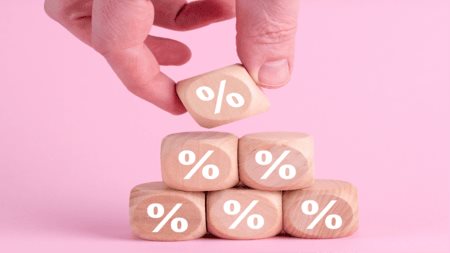The South African Reserve Bank has cut the repo rate from 7.50% to 7.25%, and the prime lending rate from 11.00% to 10.75% as of 29 May 2025.
What this means for you:
The repo rate is the rate at which the Reserve Bank lends money to commercial banks. When it goes down, banks can borrow more cheaply — and often pass those savings on to you by lowering the interest they charge.
The prime lending rate is the starting point banks use to calculate interest on things like home loans. A drop here usually means lower monthly bond repayments.
There is no doubt that property stakeholders are pleased with the Monetary Policy Committee’s (MPC) decision on 29 May 2025 to reduce the interest rate by 0.25%. However, some feel that it was somewhat subdued, given that inflation is well below the 4.5% mid-point — recording 2.8% in April. There is, however, some understanding of why the MPC was cautious in not opting for a 0.5% cut.
Lew Geffen Sotheby’s International Realty
Yael Geffen, CEO of Lew Geffen Sotheby’s International Realty, has called the decrease “a step in the right direction”, noting South Africa’s fraught international relations with its western trading partners, meaning that the MPC had no room to manoeuvre on a cut larger than 25 basis points.
“It was, unfortunately, a sound decision because of the broader economic implications of the government’s ongoing alienation of our biggest trading partners. Last month, the Rand briefly touched a multi-year low against the US Dollar, and businesses across the board are going to take a severe hit from the higher tariffs on imports into the United States that have only partially and temporarily been reversed.”
Geffen says the volatility is one of the major reasons South Africans have been returning to the safety of bricks-and-mortar investing. “Property is a tangible, long-term asset, and it’s among the safest investments we can make right now. The uptick in the market this year is testament to that.”
Geffen’s advice to sellers in the current market is to be realistic about pricing, and to buyers, not to extend themselves to the limit. “Buy what you can afford, with room to spare for possible rate increases later in the year, depending on what the government does now to mend international relations.”
First National Bank
FNB confirms that it will cut its prime-linked lending rate by 0.25%, with effect from Friday, 30 May 2025. CEO Harry Kellan says: “Interest rates and inflation need to be viewed in a wider context. We saw a sharp decline in the FNB/BER consumer sentiment measure in the first quarter of 2025, driven largely by indications of a potential VAT hike, which has since been removed. Consumer sentiment is also impacted by the lower-than-expected inflation increases in house prices, as noted in the FNB Property Barometer."
FNB Chief Economist Mamello Matikinca-Ngwenya adds: “Inflation remains below the bottom of the inflation target range, and high-frequency data reflects a weak start to 2025 from a productive sector point of view, which will be worsened by faltering global prospects. Ultimately, the macroeconomic outlook is benign, providing ample space for a continued cutting cycle.”
FIRZT Realty
“This interest rate cut underlines the urgency with which buyers and investors should be purchasing properties in Johannesburg,” says Denese Zaslansky, CEO of the FIRZT Realty group. “Demand has already strengthened since rates started to come down in September last year. Stock is drying up in popular areas, and we have seen a 38% increase in sales and an average 6% price increase in the past six months.”
The cuts to date have brought the home loan interest rate to 10.75%, its lowest since February 2023, Zaslansky reminds us, which underpins a steady rise in property prices.
“This means that there is no time to waste for prospective buyers and investors. At the current average home price of around R1.6 million, for example, the gross monthly income required to qualify for a home loan is around R54,200 — which is R3,600 less than it was at this time last year.
“Global and local market turmoil has made consumers everywhere cautious about spending too freely. A reset is clearly needed, and the Reserve Bank has now followed the lead of many other central banks in lowering interest rates even further, in order to boost confidence and hopefully encourage people to loosen their purse strings, buy more, and stimulate employment as company fortunes improve,” says Zaslansky.
Chas Everitt
Berry Everitt, CEO of the Chas Everitt International property group, says the announcement will cut the cost of borrowing by around R17 per R100,000.
“This means that on the R1.6 million average home price noted in the May BetterBond Property Brief, the minimum monthly bond repayment will drop by R272, making it easier for prospective buyers to qualify for new home loans. And for existing homeowners with 20-year bonds at that level, their monthly repayments will now be almost R1,100 lower than at this time last year.”
For first-time buyers, the cut is even better, Everitt says, with the minimum monthly repayment on the average first-time buyer home price of R1.28 million dropping by R218, and the gross monthly income required to qualify for a 20-year loan of that amount falling by more than R700.
“In addition, the banks have been easing deposit requirements in recent months, and the average deposit for first-time buyers is currently almost 9% lower — at R175,000 — than it was at this time last year. Coming on top of the Budget decisions to raise the Transfer Duty threshold to R1.2 million and not to raise VAT, this means that first-time buyers now require a lot less cash to become homeowners.”
Everitt says this is already being reflected in the market, with BetterBond recording a 2.2% year-on-year increase in home loan applications in April, “which represents a huge comeback from the 15% year-on-year decline recorded in April 2024.”
Tyson Properties
Tyson Properties CEO Chris Tyson says the MPC decision is a welcome reprieve for both property owners and investors. “Although a series of interest rate cuts was predicted for the first half of 2025, this hit a pause when the central bank left rates steady in March. The continued global uncertainty that followed US President Donald Trump’s so-called tariff tsunami, together with local upheavals surrounding the 2025 government budget and elevated unemployment, called for restraint.”
Tyson points out that although there were indicators suggesting the Reserve Bank could either drop or even increase interest rates, it decided to give South Africans some cause for optimism. This latest interest rate drop is also likely to counter the depressed economic growth forecast announced in the Finance Minister’s third budget last week.
“Our inflation rate is quite low at the moment,” Tyson points out. “I think, given the ongoing uncertainties in the market, the Reserve Bank will wait at least another six months just to see where things are going.
“I also think that the current interest rate scenario is where our new norm is going to lie. It might go down a little bit, it might go up a little bit, but I think that people must budget according to where interest rates are right now. This is the level with which we are going to have to work. If it drops a little, then this will be a bonus. If it goes up a bit, they will have been prepared,” he advises.
RE/MAX
Regional Director and CEO of RE/MAX of Southern Africa, Adrian Goslett, who is pleased with the decrease, says this cut couldn’t have come at a better time for the real estate market and aspiring homeowners.
“With inflation at historic lows and household budgets still under pressure from slow economic growth, any easing in the interest rate environment is a meaningful win for consumers. Lower borrowing costs translate directly into more affordable monthly repayments, which can help unlock greater activity in the property market,” he notes.
While the residential property market has remained surprisingly resilient through a tough economic cycle, Goslett believes that this rate reduction will help reignite buyer confidence — especially among first-time buyers and the middle-income segment. “It also sends a signal that the Reserve Bank sees scope for supportive policy without compromising its inflation mandate, which should also boost investor confidence and provide room for greater economic growth,” Goslett highlights.
RE/MAX encourages both buyers and sellers to act strategically during this more favourable rate window. “For buyers, it may be a good time to explore opportunities while rates are still trending lower. For sellers, improved affordability could mean a larger pool of potential buyers — which could result in a quicker sale and more competitive offers,” says Goslett.




